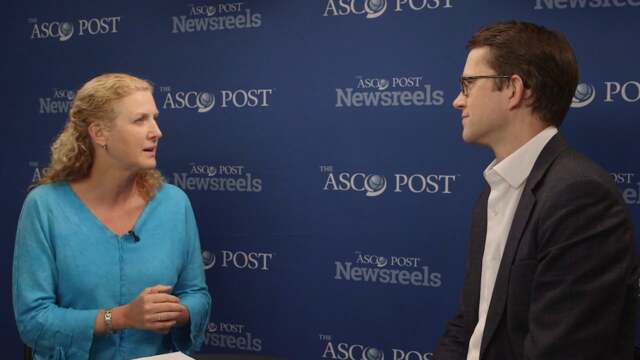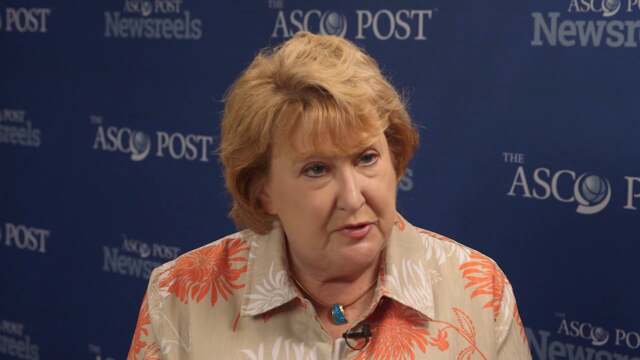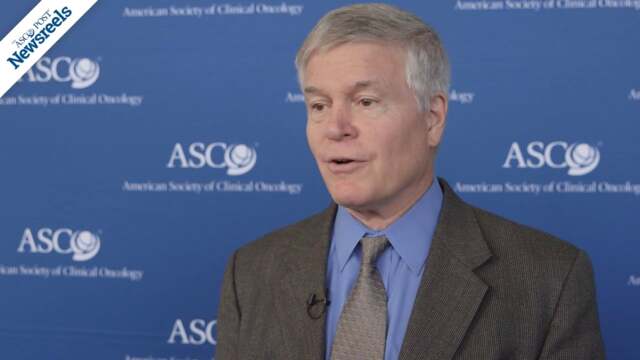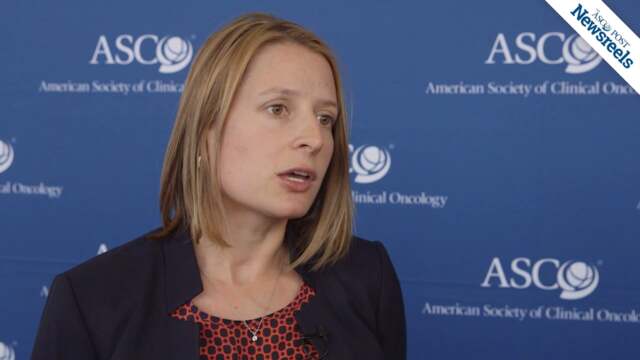John P. Neoptolemos, MD, PhD, on Pancreatic Ductal Adenocarcinoma: Results of the ESPAC-4 Trial
2016 ASCO Annual Meeting
John P. Neoptolemos, MD, PhD, of the University of Liverpool, discusses findings from this international phase III study of adjuvant combination chemotherapy: gemcitabine and capecitabine vs monotherapy gemcitabine in patients with resected pancreatic ductal adenocarcinoma (Abstract LBA4006).
Lisa A. Carey, MD, of the University of North Carolina, and Nicholas C. Turner, MD, PhD, of The Royal Marsden Hospital and Institute of Cancer Research, discuss the efficacy of palbociclib plus fulvestrant in patients with ESR1 mutations in circulating tumor DNA, and palbociclib and letrozole for postmenopausal women with ER+/HER2–advanced breast cancer (Abstracts 507, 524).
Patricia J. Goldsmith, Chief Executive Officer of CancerCare, which provides free, professional support services to anyone affected by cancer, discusses findings from six distinct surveys with input from more than 3,000 individuals at varying stages of their cancer experience.
John D. Hainsworth, MD, of the Sarah Cannon Research Institute, discusses early findings from this umbrella basket study on targeted treatment, outside of current drug indications, for different types of advanced solid tumors (Abstract LBA11511).
Maria Clemence Schwaederle, PharmD, of the University of California, San Diego, discusses an analysis of 13,203 patients in phase I clinical trials, which showed that a personalized strategy led to improved response rate and progression-free survival (Abstract 11520).
Julie Lemieux, MD, of Centre Hospitalier Universitaire de Québec, discusses patient-reported outcomes from a study extending adjuvant letrozole for 5 years after completing an initial 5 years of aromatase inhibitor therapy alone or preceded by tamoxifen (Abstract LBA506). To see the French language version of this discussion, click here.





